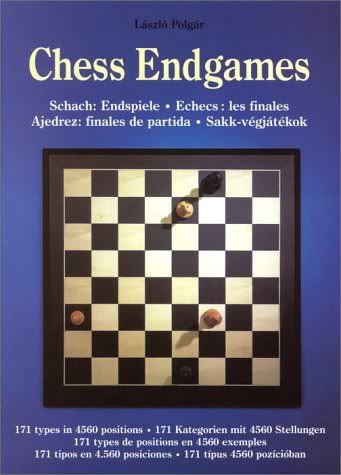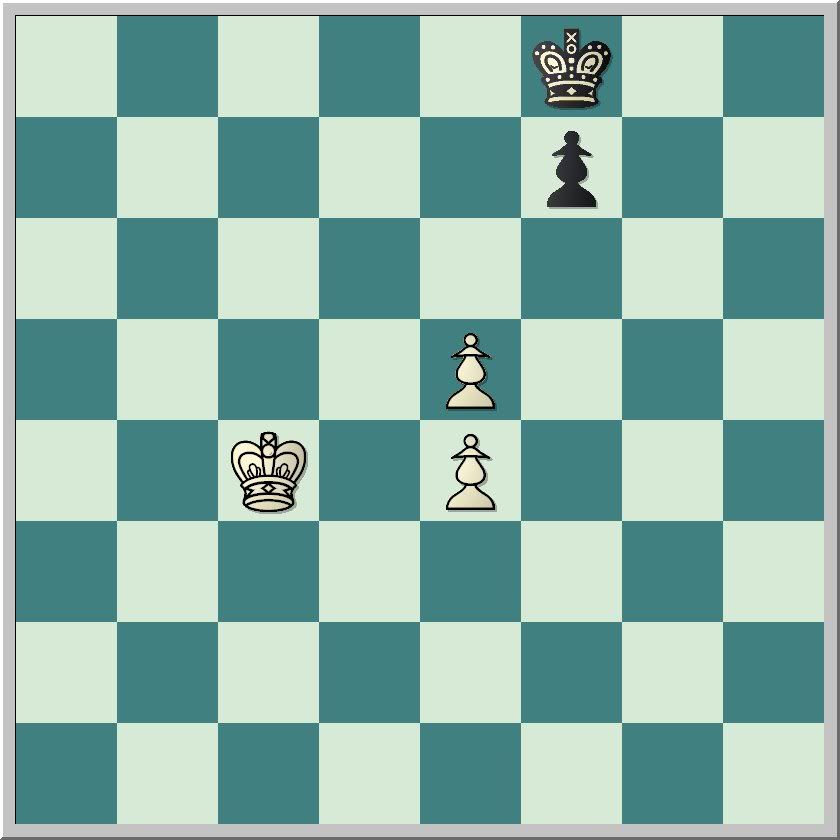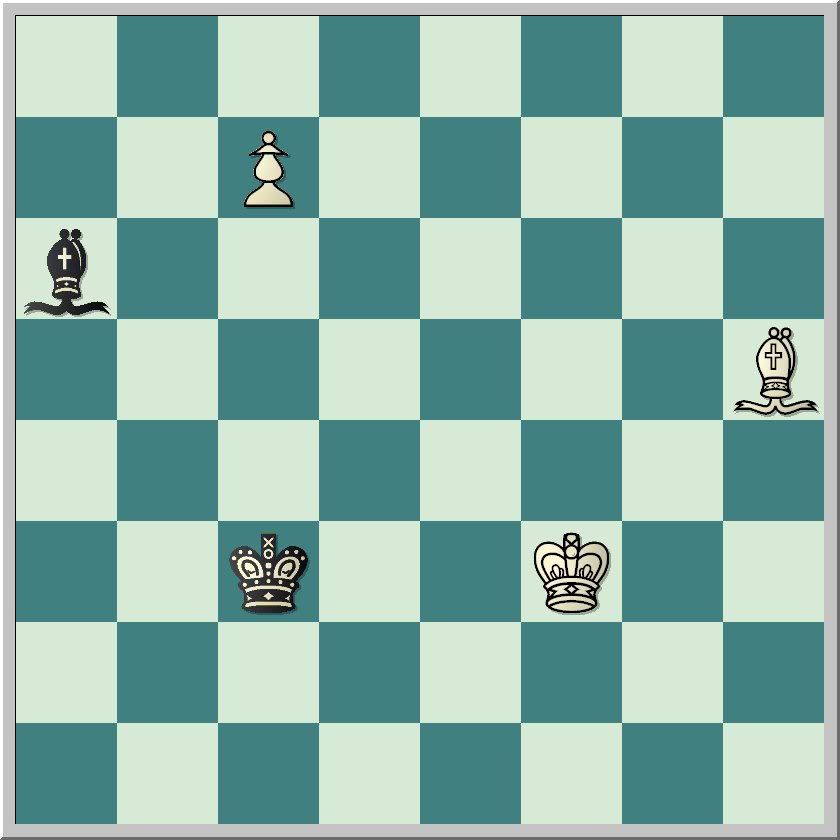 The heaviest endgame book on my shelf is Laszlo Polgar's seemingly rare Chess Endgames (1999). In the United States, Amazon.com lists one copy available from a vendor for $574.53, but Amazon.de lists seven used copies starting at 15.00 EUR and three new from 23.90 EUR. The text is out of print, and appears more readily available in Europe than in the United States. Fortunately, I bought my copy eight or nine years ago for something close to the list price of $29 plus shipping.
The heaviest endgame book on my shelf is Laszlo Polgar's seemingly rare Chess Endgames (1999). In the United States, Amazon.com lists one copy available from a vendor for $574.53, but Amazon.de lists seven used copies starting at 15.00 EUR and three new from 23.90 EUR. The text is out of print, and appears more readily available in Europe than in the United States. Fortunately, I bought my copy eight or nine years ago for something close to the list price of $29 plus shipping.It is a daunting book that I use mostly for reference. On the other hand, from time to time I resolve to work through in a short period of time the first 318 problems--called "elementary positions".
This resolution always leads to failure because these elementary positions include quite a few that present difficulties. Consider number 42 for instance:
White to move +-

White has a decisive advantage, but how?
The Composer
This position is attributed to Crum, 1913, probably John Crum--Polgar's source gives no more than last name and date. Irving Chernev's Practical Chess Endings (1961) also has this problem (61), as well as another by Crum from 1913. Polgar has at least one more Crum composition, number 443, dated 1921.
White to move +-

A Google search for chess and Crum turns up in Google Books a J. Crum who was a "First-Class amateur" that lost game number 2659 published in the British Chess Magazine (October 1905). There is also a reference in Edward Winter's Chess Notes 4744 to a Mr. Crum who offered a suggested improvement in a game lost to Joseph Henry Blackburne, who won blindfolded. Crum was also the contact for entries to a problem composition contest sponsored by Chess Player's Chronicle, and open to all the world according to the announcement in the Westminster Papers 1 November 1878 (150).
The website Chess Scotland offers more information: John Crum was the first Scottish Champion, winning the title in 1884, and was a noted endgame composer. Tim Harding's Chess Cafe column The Kibitzer mentions the role of Crum in a postal match between the Glasgow and Copenhagen chess clubs that took place in 1879-1880 and was reported more fully in the Danish magazine Nordisk Skaktidende than in a Scottish publication where he had found part of the game.











I think i have that book (aswell as the middlegame book) but it's somewhere in my closet where i dont come often so it's probably hidden under dust.
ReplyDeleteAfter reading what you wrote i probably going to read a little in the book but first i have to make an asigment for my chess trainer about the french opening. So before next week i will not have time to dive in that book.
Polgar put out three of these door stopper size books. I found the first--Chess Training in 5334 Positions--on a sale table about 1998, bought it, and started working through problems. At one point in about 2000 or 2001, I was spending 20-30 minutes every morning, before reading the newspaper, solving problems in this book. I stopped at about #1600 to take a break.
ReplyDeleteIt was during that time that I bought Chess Endgames. Back then, the US Chess Federation offered for sale all three books, and I thought I might buy the middlegame text, too. Before I did, however, it went out of print. The original Chess Training text still regularly appears on the shelves of my local bookstores, but the others are less well known.